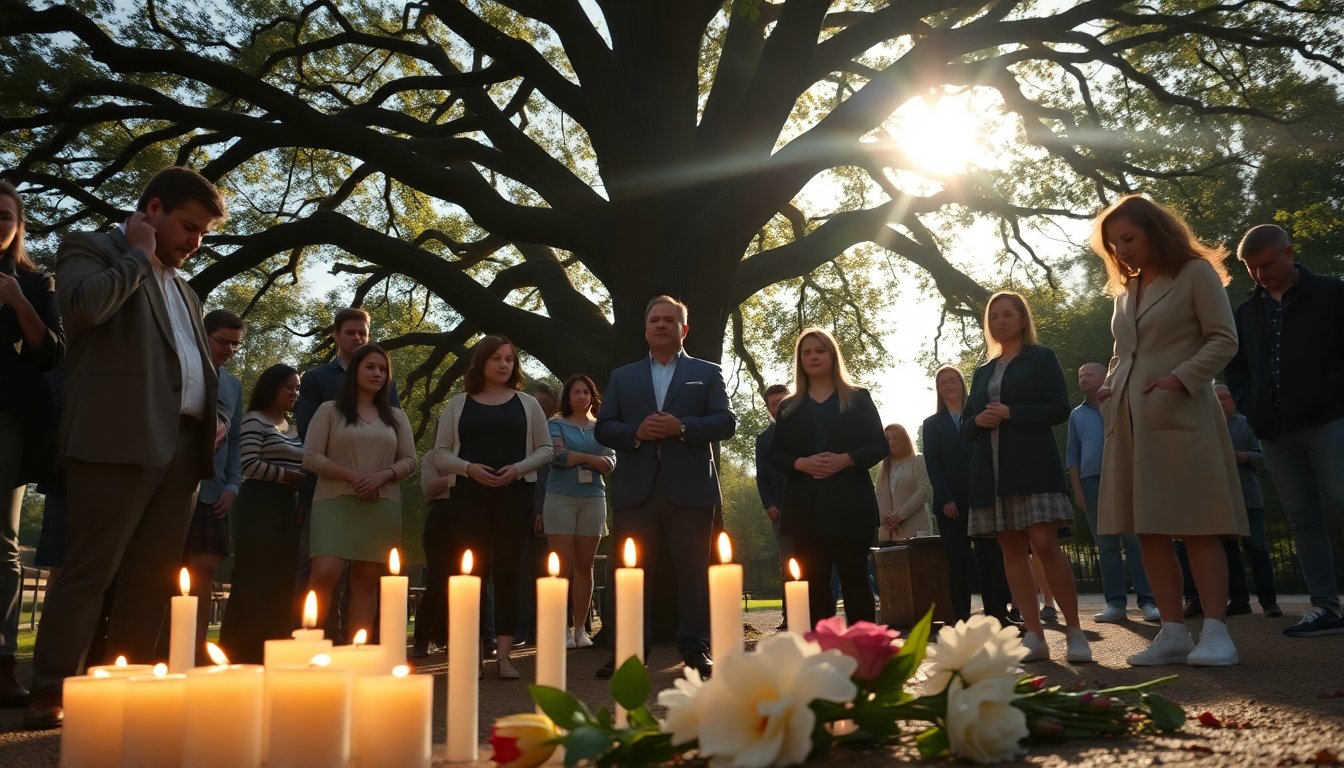Table of Contents
The recent assassination of Charlie Kirk, a prominent conservative activist and co-founder of Turning Point USA, has sent shockwaves across the political landscape of America. This tragic event not only cut short the life of a dedicated advocate for conservative values but also raised significant concerns regarding the rising tide of political violence in the country. As communities mourn the loss of Kirk, the dialogue surrounding his death has prompted urgent discussions about the implications for political discourse and civil society.
The Response from the Political Sphere
In the wake of Kirk’s assassination, various political figures and organizations have responded with a mixture of condolences and calls for reflection. U.S. Secretary of Transportation Sean Duffy described the behavior of certain airline employees who made inappropriate remarks about Kirk’s death as “disgusting” and called for their immediate termination. Such actions highlight the need for accountability in public discourse, especially regarding sensitive subjects surrounding violence and loss.
American Airlines and Delta Air Lines also took decisive action against employees who made celebratory comments online, reinforcing the idea that companies must maintain a standard of respect and professionalism. Both airlines issued statements condemning violence and reaffirming their commitment to creating a safe environment for all. These responses underscore the importance of corporate responsibility in the context of public figures and their treatment in the media and workplace.
The Role of Community and Support Networks
As the news of Kirk’s death spread, communities across the nation began to rally in support of his family and the values he championed. Vigils and memorials emerged as platforms for expressing grief and solidarity. The Turning Point USA organization reported a surge in interest and engagement following Kirk’s assassination, with thousands of new chapter requests pouring in. This response reflects a deep-seated desire among supporters to continue Kirk’s mission and honor his legacy through active participation in the conservative movement.
Erika Kirk, Charlie’s widow, has taken on a prominent role, vowing that her husband’s work will not only continue but will thrive. Her passionate address about the importance of family and community resonates with many, as she emphasized the need for love and resilience in the face of adversity. Her determination to keep Turning Point USA thriving highlights the potential for grassroots movements to mobilize in response to tragedy.
Reflections on Political Violence
The circumstances surrounding Kirk’s assassination have sparked broader discussions about political violence and the societal factors contributing to such acts. Commentators and public figures have debated the role of media rhetoric in shaping perceptions of political opponents, with some arguing that inflammatory language can lead to real-world consequences. This ongoing dialogue invites reflection on how political discourse has evolved and the responsibility of individuals and organizations to foster a culture of respect and understanding.
As communities reflect on Kirk’s legacy, it becomes imperative to consider the type of political environment that is being cultivated. The call for civil discourse is more urgent than ever, as Americans grapple with the reality that differing opinions should not result in violence or threats. The challenge lies in finding common ground and promoting constructive dialogue that honors the values of free expression while also advocating for the safety and dignity of all individuals.


